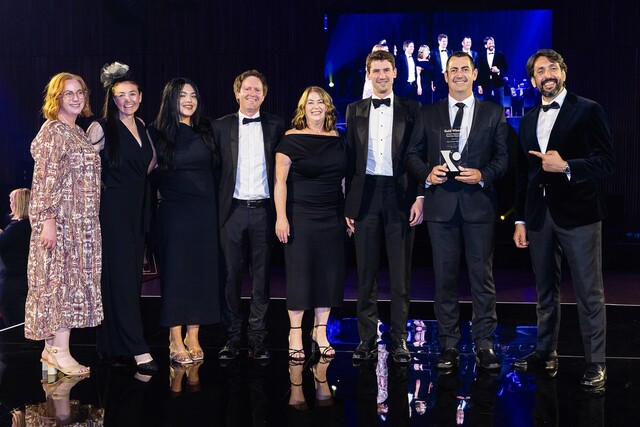One of the best parts of my job is to visit Europe annually to ask economic development practitioners about global issues and their likely impact on Australia. I also get to visit our son and his lovely new wife, who work in advertising and banking in London and thus provide great insights.
In respect of Brexit, the Brits seem to be flummoxed as to how it will play out, and investment is stalling as a result. Half the nation seems to want to have another vote, while the others see Brexit as a new and exciting beginning. But as one wag suggested, the worst job in the UK would be the government officials negotiating the exit with the European Commission (EC).
The other big issue is President Trump’s antics. My colleagues in Hamburg, Berlin and London are gobsmacked at a political system that allows an individual unbridled power to develop policy on the run. The consensus of almost everyone I spoke to is that Trump will not serve out his term.
But the issue that I kept coming back to was whether Australia can forge stronger economic links with the UK and indeed Germany and the EC generally once Brexit starts to take effect. My reasoning is that Europe is a stable economic powerhouse, albeit in a slow growth phase, and there are still lots of economic opportunities there. As we drove around or settled down over a rough red (wow – $50 is the price point for a half-decent wine), we were invariably discussing the relative strengths and weaknesses of Australia vis-à-vis European nations, and how we might activate some trade or investment deals.
I will come to these is a moment, but after much discussion we identified some examples of Australia’s relative strengths, including:
- our organisational skills and can-do work ethic the ‘worldliness’ of our youths (due to a pretty good education system and a yearning for travel)
- Europeans’ intrigue with Australia, possibly because of our perceived geographic isolation and the glitzy lifestyle images projected by TV soaps such as Home & Away, Neighbours, etc and
- our horseracing industry – our venues, prize money, patronage and betting shops are clearly superior.
Our discussions also aimed to postulate Australia’s relative weaknesses vis-à-vis Europe. Some examples are our:
- high wage costs
- long distances – a 24-hour flight is a major turnoff for European businesses and tourists. And when they do come, high domestic airfares are a further irritant
- small domestic market. Europeans aren’t aware of Australia’s potential to provide a bridge into the big Asian tiger markets and
- relatively expensive food, groceries and pharmaceuticals.
We concluded that the above circumstances mostly reflect market failure or a simple lack of the right people, which might be addressed by facilitating the entry of new players into the respective markets. Two examples immediately suggest themselves. The first is indeed horseracing. The opportunity arguably lies in getting Australian-controlled betting agencies and their IT partner companies and administrators more involved in the UK and European industries. Not a role for government here – more a matter of some enterprising folk winning contracts to manage certain racing activities in the UK and on the continent.
A second opportunity is pharmaceuticals. It became clear when talking to a former Astra Zeneca executive, who explained that AZ has 4500 researchers based in Cambridge and a similar number in Sweden and is a world pharma leader in the UK ($A48 billion market) and around the world. I figured out later that while the Australian market is about $A23 billion, our local manufacturing effort is abysmal. Home-grown pharma products sold in our home market total less than $A3 billion – in other words, imports account for 90 per cent of our market. This is typical of the Australian manufacturing malaise – but no one ever discusses it.
The opportunity is surely for us to court companies like AZ to establish manufacturing facilities here. We have the world-class medical facilities, the research labs, the researchers, the technicians, a legal system to protect intellectual property, the lifestyle, proximity to the Asian market and the potential to grow strong pharma clusters around Melbourne and Monash precincts, Macquarie/Ryde, the NSW Central Coast, Adelaide University and the like.
But the problem is that our federal and state governments have walked away from pitching to the big pharma companies. Well the UK government certainly hasn’t, nor have the French. In partnership with the European Commission, they have been actively courting strategic investments by the big players. Meanwhile our manufacturing sector dwindles, together with our manufacturing regions.
Some local councils have sparked a national debate about Australia Day. Why couldn’t other councils spark a national debate about a proactive industry policy? Upper Hunter Council (Scone) could be activating and provoking the British horse breeders in its mist. Councils close to our medical hotspots could be identifying and provoking European pharma companies to establish nearby. National and state governments don’t have the inclination or industry knowledge to initiate this, but they’d surely follow your lead once opportunities show promise.
Rod Brown is a Canberra-based consultant and lobbyist specialising in industry/regional development, investment attraction and clusters, and accessing federal grants. He also runs the Cockatoo Network.
Phone: (02) 6231 7261 or 0412 922 559
Email: apdcockatoo@iprimus.com.au
Blog: investmentinnovation.wordpress.com (750+articles)
















